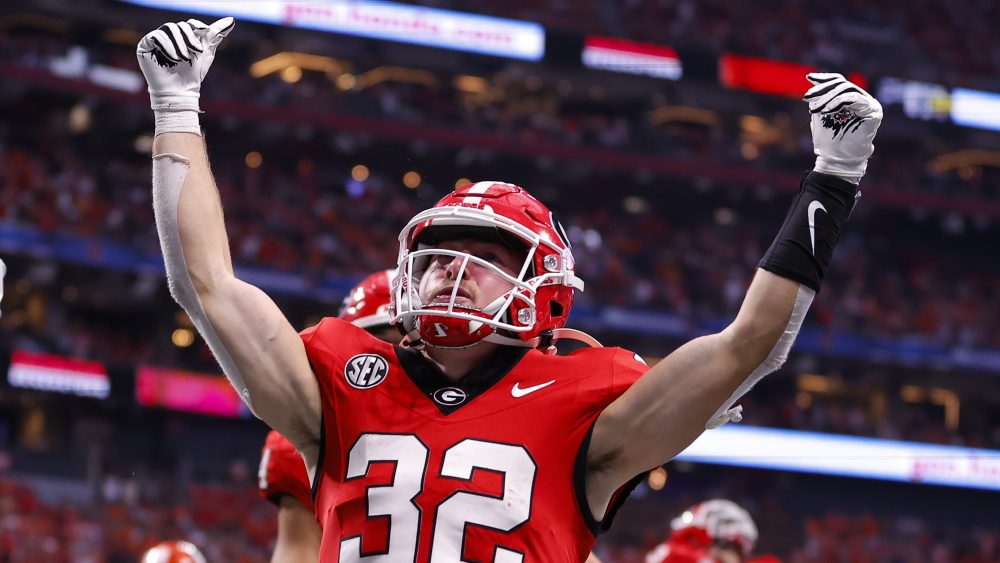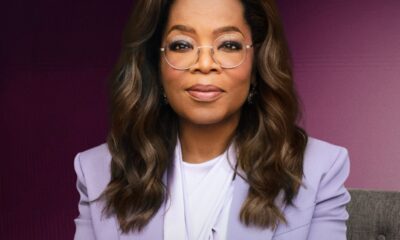Entertainment
ESPN, ABC, Disney Channel go dark on DirecTV amid contract fight

ESPN and other Disney-owned channels have disappeared from view on DirecTV after the sides failed to reach an agreement on a new carriage deal, a business impasse that reflects the broader economic pain spreading through the pay-TV industry.
The outage, which comes during a big college football weekend and during ESPN’s coverage of the US Open tennis tournament, affects most of DirecTV’s more than 11 million subscribers in the US. DirecTV stated that Disney made the decision to pull the plug while negotiations were underway. Disney executives argued they had no choice because DirecTV refused to pay what it described as market rates for its channels.
“While we are open to offering DirecTV flexibility and terms that we have extended to other distributors, we will not enter into an agreement that undervalues our portfolio of television channels and programs. We invest significantly to deliver the No. 1 brands in entertainment, news and sports because that’s what our viewers expect and deserve. We urge DirecTV to do what is in the best interest of their customers and complete a deal that would immediately restore our programming,” Disney said in a statement attributed to Disney Entertainment co-chairmen Dana Walden and Alan Bergman and ESPN Chairman Jimmy Pitaro.
DirecTV blamed Disney for demanding higher prices that the satellite TV provider will have to pass on to consumers.
“The Walt Disney Co. once again declines any responsibility to consumers, distribution partners and now the U.S. legal system,” said Rob Thun, chief content officer at DirecTV. “Disney is in the business of creating alternate realities, but this is the real world where we believe you earn your money and are accountable for your own actions. They want to continue pursuing maximum profits and dominant control at the expense of consumers, making it harder for them to select the shows and sports they want at a reasonable price.
DirecTV also alleges that Disney is using its business influence in a heavy-handed manner to force DirecTV to relinquish future claims that “Disney’s conduct is anticompetitive.” That’s a regulatory buzzword designed to pique the interest of DC watchdogs in this now very public business dispute. Disney and its two major partners in the Venu streaming sports bundle company – Warner Bros. Discovery and Fox Corp. – are already embroiled in lawsuits over the proposed sports service. A judge issued a temporary injunction earlier this month blocking the service’s launch, amid antitrust claims by independent sports organization Fubo in a federal lawsuit filed in February.
In its lengthy press statement on Sunday, DirecTV stated bluntly: “Disney required that in order to enter into a licensing agreement or expand access to its programming, DirecTV must agree to waive any claims that Disney’s conduct is anticompetitive . Furthermore, any future lawsuits arising from DirecTV/Disney licensing agreements would be tried in California – not New York – because – as Disney counsel specifically stated – SDNY Judge Garnett “did not understand the issues” when he issued a preliminary injunction against Disney’s Venu. Sport. Disney’s last-minute demands to eliminate any legal liability for its growing pattern of anticompetitive actions should be alarming to all pro-consumer advocacy groups, regulators and Department of Justice attorneys.”
Disney and DirecTV have been in tense negotiations for months about the renewal of the cars. Disney had hoped to implement a sales agreement with DirecTV to support the Disney+ and Hulu streaming bundle, which is currently the biggest business priority for the Mouse House. Disney was working in such terms on its hard-won pact reached this time last year with Charter Communications after a 12-day blackout.
DirecTV, like other MVPDs, is facing declining demand for video services as viewers move to pure-play streaming and ad-supported free content options that have exploded in recent years. As such, DirecTV is taking a tough stance on rate increases for channels that are seeing declining linear viewership. Disney’s focus on launching a standalone streaming option for ESPN — one of the longstanding mainstays of the cable TV bundle — next year gives DirecTV little incentive to pay more for the service.
Unlike traditional cable operators, satellite-delivered DirecTV is not optimal for providing subscribers with high-speed broadband services. With the Charter deal, Disney will pay the cable giant some kind of fee every time a subscriber signs up through the Charter Spectrum platform, where Disney+ and Hulu are offered as add-on options. DirecTV has much less incentive to help Disney pitch its streaming bundle to subscribers.
DirecTV has pushed its programming partners for greater flexibility in creating smaller, cheaper channel bundles. ESPN and other sports channels are among the biggest drivers of the annual increase in programming costs for MVPDs like DirecTV. Disney responds that the cost of sports rights is rising, not falling (see: last month’s 11-year, $76 billion NBA TV rights deal) and that it has been open to new options in light of the deal that ends addressed the impasse surrounding Charter Communications. .
DirecTV’s Thun directly mentioned Disney’s strategic shift to direct-to-consumer platforms as a factor in the negotiations. “Consumer frustration is at an all-time high as Disney switches its best producers, most innovative shows, top teams, conferences and entire leagues to their direct-to-consumer services, while customers are charged more than once for the same programming on multiple Disney platforms,” Thun said in a statement.
DirecTV’s statement also cited the trend that Wall Street media industry analysts call “leakage,” or the diversion of premium content to Disney+ and Hulu, which once went exclusively to ABC and linear cable channels.
“Disney’s top studio producers and most innovative series are shifting exclusively to or preferring to appear first on their streaming products, while using pay-TV revenues, one of its key revenue streams, to invest in quality programming that runs exclusively on their own platforms. For example, Disney’s top shows, such as ‘The Bear’ and ‘Only Murders in the Building,’ are exclusive to Hulu, and ‘Shogun’ will run on Hulu first instead of pay TV,” according to DirecTV. “Meanwhile, Disney fills the airtime of its ABC network with cheap-to-produce primetime game shows, unscripted spinoffs, old former ABC hits, or simulcast content from other Disney channels like ESPN, while demanding ever-increasing prices from distributors and ultimately from consumers. ”
The blackout came around 4 p.m. PT on Sunday, just as ESPN was about to air a highly anticipated college football game for the 2024 season between the USC Trojans and the Louisiana State University Tigers.











